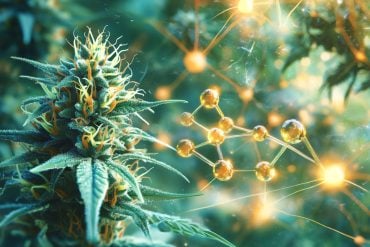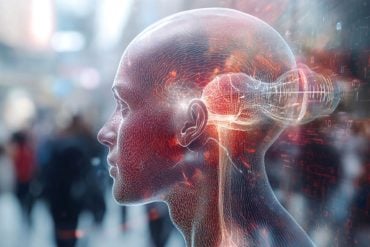Summary: Body temperature exerts a greater effect on longevity and lifespan than metabolic rate, researchers report.
Source: Chinese Academy of Sciences
Researchers from the Shenzhen Institute of Advanced Technology (SIAT) of the Chinese Academy of Sciences, along with collaborators from Wenzhou University and the University of Aberdeen, have found that body temperature exerts a greater effect on lifespan than metabolic rate.
Their findings were published in Nature Metabolism on March 14.
You have probably heard the phrase “live fast, die young.” It comes from the observation that people with fast and risky lifestyles often get into accidents and die prematurely. But in biology it has a rather different origin. It comes from the observation that animals with high metabolic rates (“living fast”) tend to die sooner than those with slow metabolism.
However, within a particular species, the link between metabolism and lifespan is less clear. Generally, interventions that produce extended life—like caloric restriction leading to lower metabolic rates—are consistent with the “live fast, die young” idea. Nevertheless, exercise increases metabolism, but on average it seems to make people live a little longer.
One problem with working out the effect of metabolism on lifespan is that metabolism is often linked to changes in body temperature. Generally, low metabolic rates are associated with low body temperature. So, when mice under caloric restriction live longer, it’s not clear that the extended lifespan is linked to their low metabolism or lower body temperature.
In this study, the researchers utilized an unusual situation where metabolic rate and body temperature move in opposite directions to try to determine which factor is more important.
When mice and hamsters are exposed to high temperatures, at the top of their thermoneutral zone, their metabolism falls while their body temperature goes up. “We found that exposing the rodents to these conditions shortened their lifespans. Lower metabolism didn’t lengthen their lives, but higher temperatures shortened it,” said Prof. John R. Speakman from SIAT, a co-corresponding author of the study.

In this study, the researchers used small fans to blow air over the mice and hamsters exposed to high temperatures. This didn’t affect their metabolism, but it prevented them from having high body temperatures. This situation reversed the impact of high ambient temperature on their lifespan.
Based on these results, body temperature seems to be a much more important mediator of lifespan than metabolic rate. For this reason, maybe we should change the saying from “live fast, die young” to “live cold, die old.”
“We separated the effect of body temperature on lifespan from metabolic rate in two species of small rodents exposed to high temperatures. We are excited about the findings, particularly that using small fans to blow air over the animals reversed the effect of high ambient temperature on lifespan by decreasing body temperature without changing metabolic rate,” said ZHAO Zhijun from Wenzhou University, who was the first and co-corresponding author of this study.
About this longevity research news
Author: ZHANG Xiaomin
Source: Chinese Academy of Sciences
Contact: ZHANG Xiaomin – Chinese Academy of Sciences
Image: The image is in the public domain
Original Research: Closed access.
“Body temperature is a more important modulator of lifespan than metabolic rate in two small mammals” by ZHAO Zhijun et al. Nature Metabolism
Abstract
Body temperature is a more important modulator of lifespan than metabolic rate in two small mammals
The relationships between metabolic rate, body temperature (Tb), body composition and ageing are complex, and not fully resolved. In particular, Tb and metabolic rate often change in parallel, making disentangling their effects difficult.
Here we show that in both sexes of mice and hamsters exposure to a temperature of 32.5 °C leads to a reduced lifespan, coincident with lowered metabolic rate and elevated Tb with no change in body composition.
We exploit the unique situation that when small mammals are exposed to hot ambient temperatures their Tb goes up, at the same time that their metabolic rate goes down, allowing us to experimentally separate the impacts of Tb and metabolic rate on lifespan.
The impact of ambient temperature on lifespan can be reversed by exposing the animals to elevated heat loss by forced convection, which reverses the effect on Tb but does not affect metabolic rate, demonstrating the causal effect of Tb on lifespan under laboratory conditions for these models.
The impact of manipulations such as calorie restriction that increase lifespan may be mediated via effects on Tb, and measuring Tb may be a useful screening tool for putative therapeutics to extend the human lifespan.







